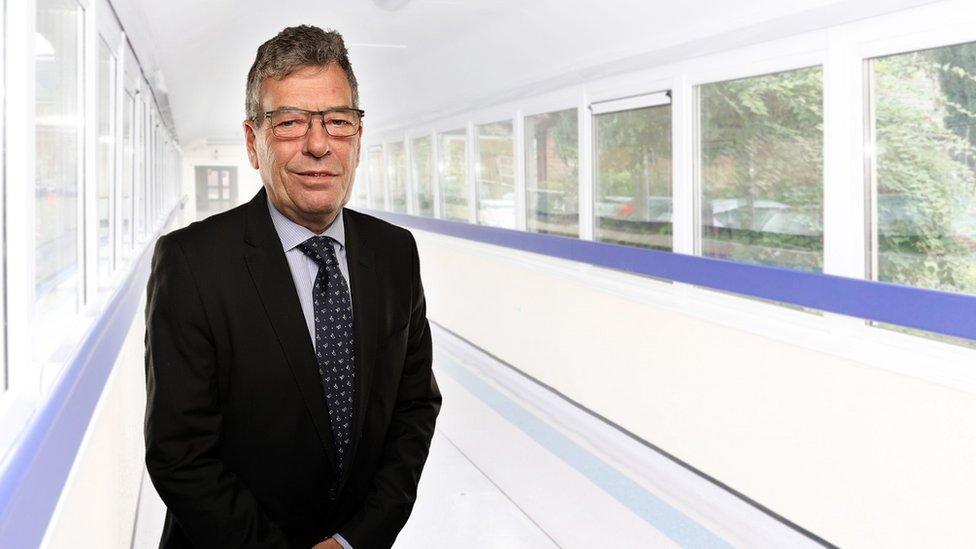Walsall Manor Hospital medical services rated inadequate
- Published

Walsall Hospital NHS Trust came out of special measures in 2019
A trust must make "significant improvements" to medical services at a hospital, a watchdog says.
Walsall Manor Hospital wards visited by the Care Quality Commission identified low staffing "as the main risk".
The trust, whose hospital medical services were rated as inadequate, was given a warning notice due to concerns found around staffing and governance and how patients were discharged.
It said it was developing a plan and pledged to increase support to workers.
The overall Walsall Healthcare NHS Trust rating is still "requires improvement" following the unannounced hospital inspection on 9 March.
It was carried out because the watchdog had received "information of concern" about safety and quality of services, specifically within hospital medicine wards.
The information related to areas including infection prevention and control, the ability to provide safe, dignified care, medicine administration, safeguarding, assessing and responding to risk and leadership.
Medical services workers supported one another, but understaffing "was causing a deterioration in the quality" of patient-focused care, the CQC's deputy chief inspector of hospitals, Fiona Allinson, said.
Staff could not "tell us about any recent learning that had been cascaded down to them", she added.
The warning notice has given the trust three months to rectify areas of concern identified.

Prof David Loughton said the trust would work with staff to deliver improvements that they and patients deserve
The trust said it would focus on the key findings, including that it did not always have enough staff to keep patients safe and that some people did not receive individualised plans of care for their end-of-life care.
Prof David Loughton said when he had been appointed interim trust chief executive he made it clear one priority was eliminating relying on agency staff and increasing recruitment, "which will be helped by the lifting of overseas travel restrictions".
He praised workers' dedication and said he was pleased inspectors recognised "kind and compassionate, respectful and dignified care" shown by staff.
Prof Loughton stated the report, which would "hit staff really hard", highlighted that workers managed medicine administration well and assessed risks to patients, acted on them and kept good care records.
It also highlighted that staff remained focused on efforts to meet patients' individual needs, especially where English was not their first language, he added.

Follow BBC West Midlands on Facebook, external, Twitter, external and Instagram, external. Send your story ideas to: newsonline.westmidlands@bbc.co.uk, external
Related topics
- Published19 April 2021

- Published25 July 2019
